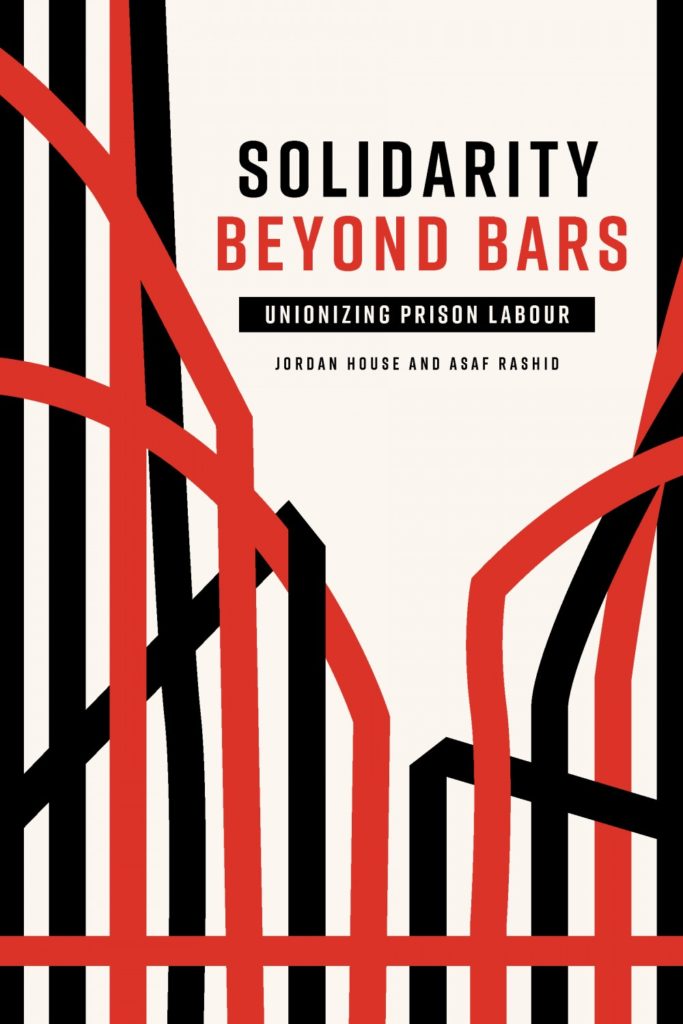
Solidarity Beyond Bars: Unionizing Prison Labour
Jordan House and Asaf Rashid, 180 pgs, Fernwood Publishing, fernwoodpublishing.ca, $26
One mark of good non-fiction is how far into its subject’s umbrella it is able to extend. My background is in labour and the book more than satisfied me in this respect. Yet labour is only one of its two umbrellas — Solidarity Beyond Bars would satisfy readers approaching it from a prisoner justice background as well. House and Rashid have a keen sense of irony, especially pertaining to the presupposition of rehabilitation. They write that “Prisoners’ work is critical for ideological reasons and, as such, prisoners could also be said to do the work of justifying the existence of prisons to society.”
If prison labour did not exist, it would have been invented by a philosopher playing with employment as a concept: Imagine there were a group of workers who were not permitted to leave a compound for months or even years at a time. Society had deemed them, for this duration, unworthy. What working conditions and pay would it be fair to impose on them…, etc.
House and Rashid observe that the freedom of many prisoners has been deprived due to factors like lack of economic opportunity, addiction, mental health issues, immigration status, histories of abuse and race. They argue that “taking up the struggles of the most marginalized and oppressed workers in society would necessarily require a shift in thinking about what the labour movement is and who it is for.”
This is a manifesto with a stated goal: drop the barriers to prison worker unionization. It provides examples of past successes. Legislative history and current context are adeptly covered, with space given to the role of correctional officer unions and outside unions. Prisoners and prisoner publications are quoted at length. It is a thought-provoking, important work.
